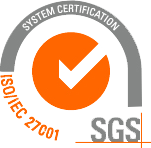홈
Communication
PR
Press Releases
SKC Showcases Glass Substrates for AI Data Center at CES 2025
l
Exhibiting actual semiconductor glass substrates at CES 2025, showcasing
their potential as a key material for AI data centers.l
Highlighting advanced glass substrate technology for AI semiconductors
and participating in presentation sessions.l Reaffirming its technological leadership as
the world’s first to commercialize glass substrates.
SKC (CEO Woncheol Park) will unveil its glass
substrates, widely regarded as a “game changer” in the semiconductor industry,
at CES 2025—the world’s largest consumer electronics and IT exhibition—scheduled
to take place from January 7 to 10 (local time) in Las Vegas, USA.
SKC exhibits actual glass substrates in the AI Data Center (AI DC) zone
of the exhibition hall jointly operated by four SK Group affiliates (SKC, SK
hynix, SK telecom, and SK enmove). Operated under the theme of “Innovative AI, Sustainable Tomorrow,” the SK
exhibition hall is divided into three zones: AI DC, AI Services, and AI
Ecosystems.
During the exhibition, glass substrates will be presented as a solution
to enhance the speed of AI servers handling large-scale data. A visualization
of their application in AI data centers will provide visitors with a tangible
understanding of how the substrates are utilized in practice.
In addition to the exhibition, a presentation will highlight the
advantages of glass substrates. Absolics, an SKC-invested affiliate in the glass
substrate business, will participate in a session titled “Cutting-edge Hardware
and Software for AI Semiconductors,” offering insights into the future
development of AI solutions driven by glass substrate technology.
Glass substrates offer several advantages, including the ability to
implement ultra-fine circuits and house various components, such as MLCCs, enabling
large-capacity CPUs and GPUs to be mounted on their surface. This leads to a
40% increase in data processing speed compared to conventional substrates,
while reducing power consumption and package thickness by over 50%. Applying glass substrates to AI data centers can significantly
reduce their physical footprint and energy consumption.
SKC has completed the world’s first mass-production facility in Georgia,
USA, and is accelerating its commercialization efforts. Last year, SKC secured USD
75 million in production subsidies and USD 100 million in R&D grants from the
U.S. government, recognizing its technological innovation.
An
SKC representative stated, “As the first company in the world to commercialize
semiconductor substrates, CES provides an opportunity to once again showcase our
technological excellence on a global stage.” They added, “We will further
solidify our technological edge through glass substrates amid the increasingly
fierce competition in the semiconductor industry.” [End]
2025-01-10
SK Nexilis Secures KRW 195 Billion Subsidy from Polish Government Under EU TCTF
● KRW 195 billion cash subsidy confirmed by the Polish government under EU TCTF, the first case among Korean battery materials companies.● Fostering the ecosystem through industry-academia cooperation and R&D while building a mid- to long-term partnership with the Polish government.● Preparing for the post-chasm market by meeting recovering European demand through the flexible operation of the first plant.SK Nexilis, a copper foil business invested in by SKC (CEO Woncheol Park), has secured a KRW 195 billion subsidy from the Polish government under the Temporary Crisis and Transition Framework (TCTF), part of the EU’s Green Deal policy.This establishes SK Nexilis as the first Korean battery materials company to receive the EU’s TCTF subsidy and the recipient of the largest-ever cash subsidy granted by the Polish government for a single investment.On December 26, SK Nexilis announced that it had finalized a subsidy of approximately PLN 545 million (approximately KRW 195 billion) from the Polish government. As part of this agreement, SK Nexilis and the Polish government will collaborate to strengthen their mid- to long-term partnership, including industry-academia cooperation and R&D, centered on the factory under construction in Stalowa Wola, Eastern Poland.In March last year, the EU introduced the Temporary Crisis and Transition Framework (TCTF), easing regulations on subsidies for EV and battery companies contributing to decarbonization efforts. Major European countries, including Italy, Spain, and Germany, have already been providing subsidies to companies operating production facilities within their countries.The cash subsidy is expected to serve as a foundation for SK Nexilis to significantly improve its local factory operations strategy. The company’s copper foil factory construction in Stalowa Wola, Poland, is nearing completion, with plans to establish a phased supply chain following the completion of client certification processes.An SKC executive stated, “This subsidy will serve as a foundation for building an ecosystem of industry-academia-research cooperation with the Polish government,” and added, “With the resulting boost to our financial stability, we will respond to the post-chasm market by promptly initiating factory operations to meet the recovering demand in Europe.” [End]
2024-12-26
SKC Recognized for Excellent in Governance by the Korea Institute of Corporate Governance and Sustainability (KCGS)
● Building a robust governance system: Managing mid- to long-term strategies through the ESG Committee under the Board of Directors.●Promoting diversity and independence in the Board: Achieving 50% representation of female outside directors.● Expanding ESG efforts to invested companies: ISC showed remarkable improvement, rising two levels in this year’s KCGS evaluation.SKC (CEO Woncheol Park) has been recognized for excellence in the governance category in the ESG evaluation conducted by the Korea Institute of Corporate Governance and Sustainability (KCGS).On December 5, SKC announced that it was awarded for excellence in the governance category at the 2024 Excellent Companies Awards hosted by KCGS. KCGS, the most influential ESG evaluation agency in South Korea, annually assesses the sustainability management practices of listed companies and honor outstanding performers. This year, a total of 13 companies were selected, including one honorary company, seven in the governance category, and five in the ESG category.SKC was acknowledged for its continuous efforts to enhance governance, including the establishment and operation of a robust governance system. Since the ESG Committee was newly organized under the Board in 2021, SKC has managed mid- to long-term strategies and reviewed major decisions related to environmental, social, and governance issues.Continued efforts have also been made to increase gender diversity and transparency on the Board. Starting with the appointment of the first female outside director in 2021, an additional female outside director was appointed to achieve female representation of 50%. Ongoing efforts have also been made to enhance the soundness of the company’s governance by publishing Activity Reports on the Board’s activities, evaluation methods, and compensation systems and disclosing information transparently.In 2022, an outside director was appointed as the Board’s chairperson, through which SKC further strengthened the independence of the Board. Outside directors comprise the majority of SKC’s directors, and the company plans to gradually increase this ratio.Along with the advancement of the governance system, SKC’s ESG management efforts have expanded to invested subsidiaries. For example, ISC is a semiconductor test solution provider invested by SKC, which jumped two levels in this year’s KCGS evaluation and obtained an overall “B” grade.An SKC representative stated, “We will continue to strengthen our governance system amidst rapidly changing business environments and set an example by fulfilling our social responsibilities,” adding, “We hope you will continue to follow SKC as we pursue innovation rooted in sustainable governance.” [End]
2024-12-05
SK nexilis Divests Thin Film Business to Focus on Strengthening Core Competencies
● Signed a business transfer agreement with private equity firm Affirma Capital for KRW 95 billion●Prioritizing financial stability this year by timely liquidating non-core businesses to secure cash●Accelerating business restructuring with a focus on high-value-added products such as Absolics’ glass substratesSKC (CEO Woncheol Park) is divesting the thin film business of SK nexilis, its EV battery materials subsidiary, to private equity firm Affirma Capital.After its Board of Directors (BoD) meeting on November 13, SK nexilis announced its decision to transfer its thin film business, which supplies FCCL (Flexible Copper Clad Laminate) for displays, to Affirma Capital for KRW 95 billion. The two companies signed a business transfer agreement immediately after the BoD meeting. SK nexilis plans to complete the necessary procedures to finalize the transaction by February next year.FCCL (Flexible Copper Clad Laminate) is a key electronic material for transmitting video signals in display products such as smartphones and TVs. It is widely used in Chip On Film (COF) applications for displays. By leveraging its advanced thin-film manufacturing technology, SK nexilis has played a significant role in advancing ultra-high-definition display products.Affirma Capital, the acquirer of SK nexilis’ thin film business, is recognized for its expertise in carve-out strategies, particularly acquiring non-core business units from conglomerates and enhancing their enterprise value. Further investment is expected post-acquisition to enhance the competitive edge of the thin film business.Earlier this year, SKC prioritized financial stability and actively pursued the timely liquidation of non-core businesses. These efforts secured over KRW 1 trillion in cash, easing the financial burden on its subsidiaries. In September, SKC also fully repaid the acquisition financing by injecting KRW 700 billion into SK nexilis through a paid-in capital increase.Building on its strengthened financial stability, the company is accelerating business restructuring focused on high-value-added products, including Absolics’ glass substrates,. The glass substrate business aims to commence mass production for customers next year, while the semiconductor materials business is working to enhance its competitiveness through ISC, a semiconductor test solution provider.“We will utilize the proceeds from the sale of the thin film business to strengthen the competitiveness of our core businesses,” an SKC official stated, adding, “Our ongoing efforts to enhance financial stability through the sale of non-core businesses will prepare us for a full-scale rebound starting from next year.” [End]
2024-11-13
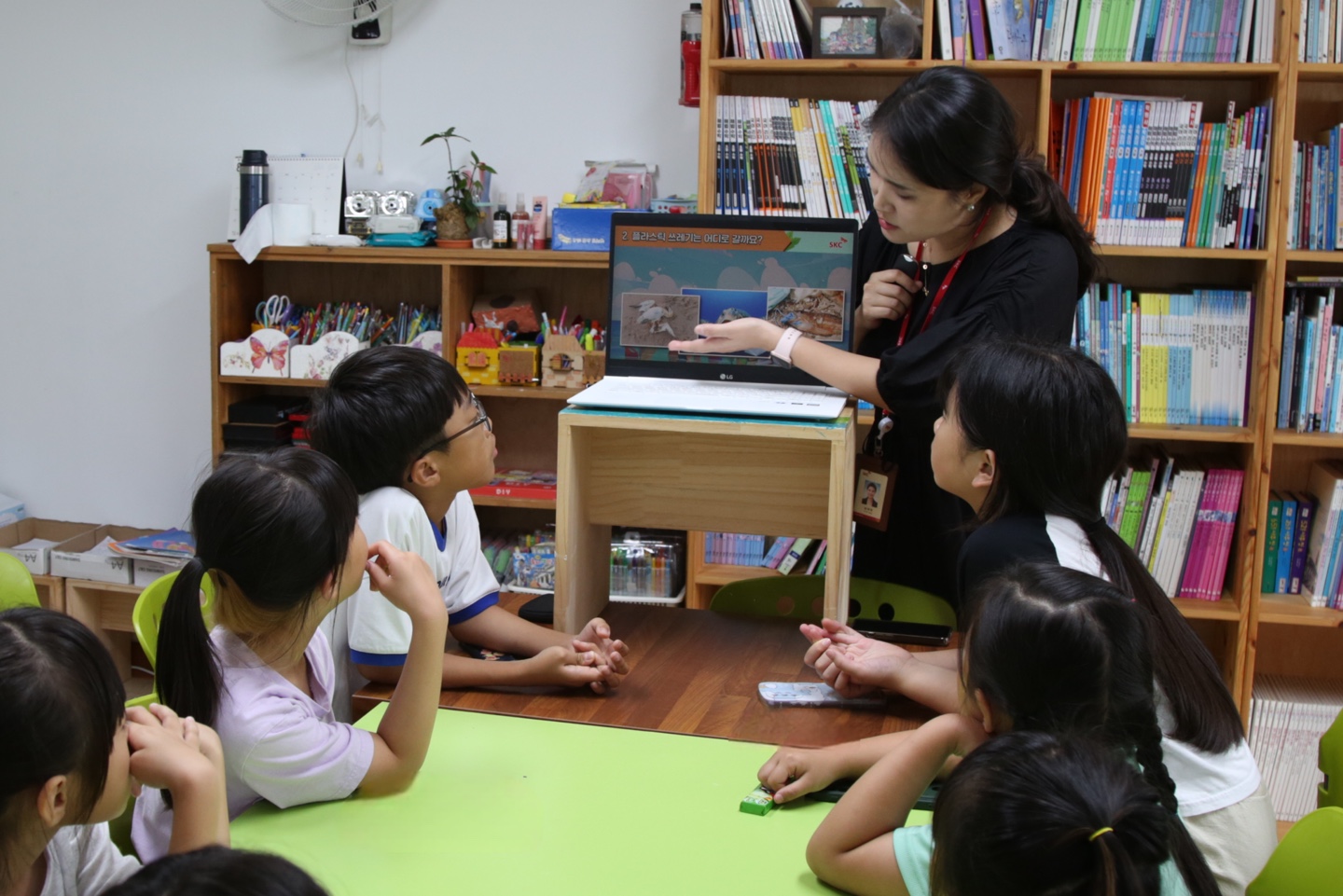 SKC Expands Resource Recycling Education for Elementary Students with My Green Place
● My Green School, a resource recycling education program for elementary students, will be held consecutively this year in Uiseong, Gochang and Ulsan● My Green Place, a game-based waste sorting platform, has been designated as an ‘Outstanding Environmental Education Program of 2024’ by the Ministry of EnvironmentSKC (CEO & President Woncheol Park) has launched a resource recycling education program for elementary students, who are the future leaders of our society, using the game-based waste sorting platform My Green Place.Oh the 13th, SKC announced that it had partnered with the Happy Alliance, a social contribution network, to conduct the My Green School activities at a community child center in Gochang-gun, Jeonbuk Province. My Green School is an education program targeted at elementary students, launched by SKC to enhance awareness of proper waste separation. Since 2022, SKC has been conducting annual demonstration on plastic waste sorting methods at elementary schools and community child centers across the country.This year, starting on the 5th with the Grape Tree Community Child Center in Uiseong-gun, Gyeongbuk Province, along with three nearby centers, SKC will sequentially conduct educational sessions for about 100 students, moving from Gochang-gun, Jeonbuk Province on the 13th to a community child center in Ulsan on the 23rd.During the program, students learn about the properties of plastic materials and then use the My Green Place app to scan barcodes on plastic products, helping them learn proper waste sorting methods. Particularly this year, the program incorporates animations that clearly explain the waste sorting methods for different plastic types, making the education more engaging and accessible for students.My Green Place, Korea’s first game-based waste sorting app, launched in 2022, surpassed 100,000 cumulative downloads last year. Right after its release, it won the Minister of Environment Award (Grand Prize) at an idea competition hosted by the Ministry of Environment, its excellence was reaffirmed in May this year when it was designated as an Excellent Environmental Education Program.To further expand its educational outreach, SKC plans to further strengthen its collaboration with local communities in the second half of the year. Additionally, the Company aims to broaden its educational scope by participating in the government’s Neulbom School program, which ensures all first-grade students receive care at schools. Through this program, SKC will deliver practical environmental education focused on waste sorting, continuing to expand the scope of its education program.“With our resource recycling program utilizing the My Green Place, we aim to enhance the social value of the platform and lead the way in increasing awareness about resource recycling,” said an SKC official. ”We are committed to continuing our social contribution activities to support our ESG practices.” [End][SKC conducted a resource recycling education utilizing My Green Place at a community child center in Gochang, Jeonbuk Province on the 13th]
2024-08-14
SKC Expands Resource Recycling Education for Elementary Students with My Green Place
● My Green School, a resource recycling education program for elementary students, will be held consecutively this year in Uiseong, Gochang and Ulsan● My Green Place, a game-based waste sorting platform, has been designated as an ‘Outstanding Environmental Education Program of 2024’ by the Ministry of EnvironmentSKC (CEO & President Woncheol Park) has launched a resource recycling education program for elementary students, who are the future leaders of our society, using the game-based waste sorting platform My Green Place.Oh the 13th, SKC announced that it had partnered with the Happy Alliance, a social contribution network, to conduct the My Green School activities at a community child center in Gochang-gun, Jeonbuk Province. My Green School is an education program targeted at elementary students, launched by SKC to enhance awareness of proper waste separation. Since 2022, SKC has been conducting annual demonstration on plastic waste sorting methods at elementary schools and community child centers across the country.This year, starting on the 5th with the Grape Tree Community Child Center in Uiseong-gun, Gyeongbuk Province, along with three nearby centers, SKC will sequentially conduct educational sessions for about 100 students, moving from Gochang-gun, Jeonbuk Province on the 13th to a community child center in Ulsan on the 23rd.During the program, students learn about the properties of plastic materials and then use the My Green Place app to scan barcodes on plastic products, helping them learn proper waste sorting methods. Particularly this year, the program incorporates animations that clearly explain the waste sorting methods for different plastic types, making the education more engaging and accessible for students.My Green Place, Korea’s first game-based waste sorting app, launched in 2022, surpassed 100,000 cumulative downloads last year. Right after its release, it won the Minister of Environment Award (Grand Prize) at an idea competition hosted by the Ministry of Environment, its excellence was reaffirmed in May this year when it was designated as an Excellent Environmental Education Program.To further expand its educational outreach, SKC plans to further strengthen its collaboration with local communities in the second half of the year. Additionally, the Company aims to broaden its educational scope by participating in the government’s Neulbom School program, which ensures all first-grade students receive care at schools. Through this program, SKC will deliver practical environmental education focused on waste sorting, continuing to expand the scope of its education program.“With our resource recycling program utilizing the My Green Place, we aim to enhance the social value of the platform and lead the way in increasing awareness about resource recycling,” said an SKC official. ”We are committed to continuing our social contribution activities to support our ESG practices.” [End][SKC conducted a resource recycling education utilizing My Green Place at a community child center in Gochang, Jeonbuk Province on the 13th]
2024-08-14
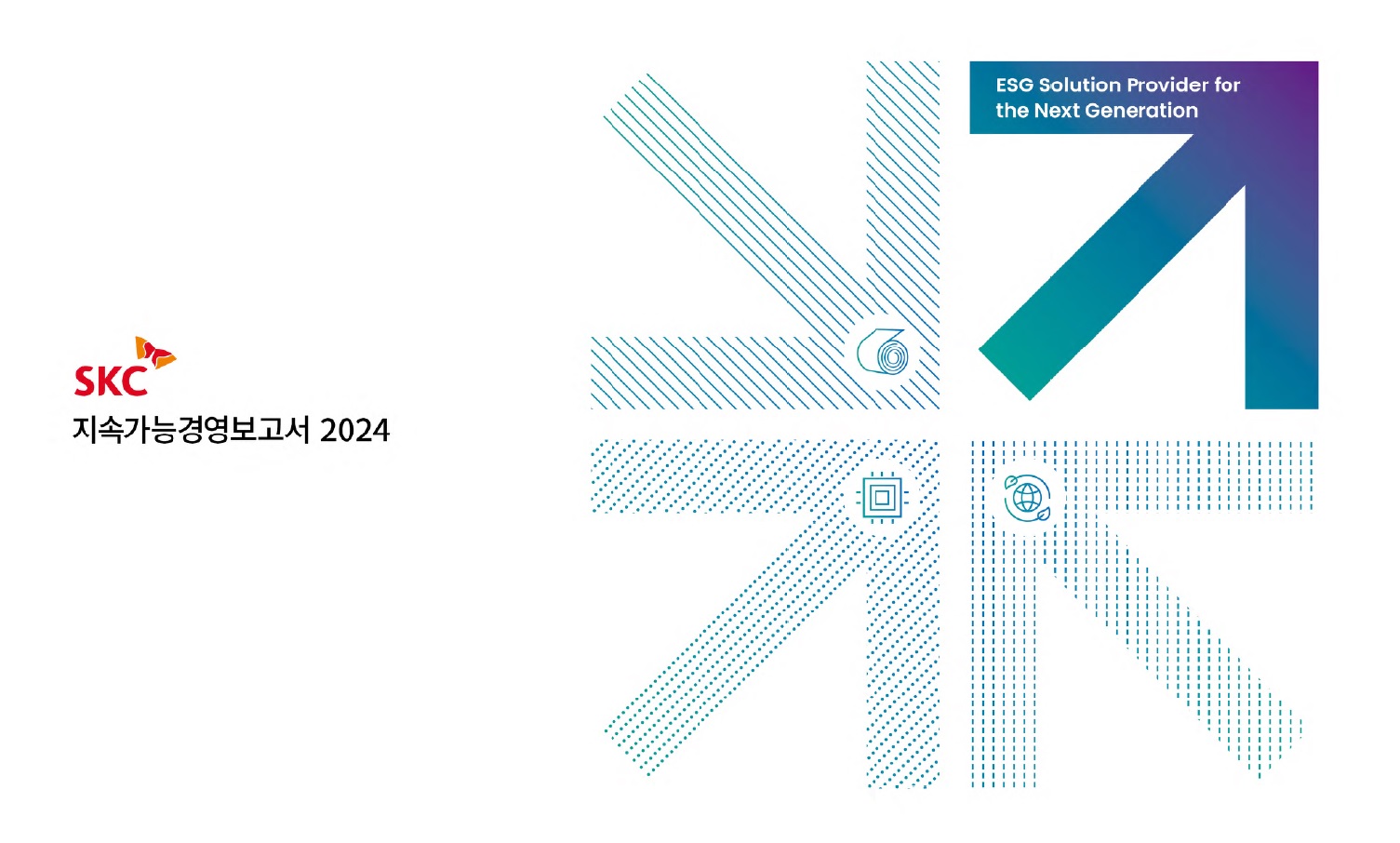 SKC Publishes 2024 Sustainability Report
● Compiled to ensure ‘more detailed and transparent information sharing’ ···first instance of disclosing ESG data for each investee● Providing integrated information on business innovation and ESG management to enhance the utility of information for stakeholders, including investors and rating agenciesSKC (CEO Woncheol Park) released its ‘2024 Sustainability Report’ on its website on the 28th.Marking the fifth edition since its inauguration in 2020, the 2024 Sustainability Report has been compiled to provide key stakeholders, including investors, customers, rating agencies, and civic groups, with more detailed and transparent information on ESG management status.The report is composed of three main sections: the Corporate Overview section, the ‘Sustainability Storybook’ that describes the status of SKC’s business sustainability and ESG management, and the ‘ESG Factbook’ that showcases ESG-relevant data. The Sustainability Storybook covers SKC’s business model innovation in EV battery, semiconductor, and eco-friendly materials, along with an overview of their ESG management system. Notably, the ‘SKC Special’ feature provides an at-a-glance view of significant changes from the past year, including the acquisition of the semiconductor test solution company ISC.The ESG Factbook contains detailed quantitative and qualitative ESG-related data for the years 2021 to 2023. Until last year, ESG data was disclosed only as a sum of SKC and its key investees. However, starting with this year’s report, the 2023 data is disclosed separately for SKC, SK Nexilis, SK picglobal, and SK enpulse, and others. This allows stakeholders to access environmental performance data, such as greenhouse gas emission reductions and water recycling, as well as social data covering human resource composition and supplier management status, broken down by each investee.The ‘2023 SKC Activity Report’ is also included in this year’s edition. SKC produced this report on a trial basis for the first time last year to promote the evaluation principles, indicators, compensation scheme of the SKC board of directors and CEO. Going forward, SKC vows to further enhance the soundness of the governance structure by continuing to disclose information transparently.An SKC representative said, ”We promise to continue with bold business model innovations based on our identity as a global ESG material solution company, while simultaneously implementing genuine ESG management practices. We will transparently disclose our performance to stakeholders.”
2024-06-28
SKC Publishes 2024 Sustainability Report
● Compiled to ensure ‘more detailed and transparent information sharing’ ···first instance of disclosing ESG data for each investee● Providing integrated information on business innovation and ESG management to enhance the utility of information for stakeholders, including investors and rating agenciesSKC (CEO Woncheol Park) released its ‘2024 Sustainability Report’ on its website on the 28th.Marking the fifth edition since its inauguration in 2020, the 2024 Sustainability Report has been compiled to provide key stakeholders, including investors, customers, rating agencies, and civic groups, with more detailed and transparent information on ESG management status.The report is composed of three main sections: the Corporate Overview section, the ‘Sustainability Storybook’ that describes the status of SKC’s business sustainability and ESG management, and the ‘ESG Factbook’ that showcases ESG-relevant data. The Sustainability Storybook covers SKC’s business model innovation in EV battery, semiconductor, and eco-friendly materials, along with an overview of their ESG management system. Notably, the ‘SKC Special’ feature provides an at-a-glance view of significant changes from the past year, including the acquisition of the semiconductor test solution company ISC.The ESG Factbook contains detailed quantitative and qualitative ESG-related data for the years 2021 to 2023. Until last year, ESG data was disclosed only as a sum of SKC and its key investees. However, starting with this year’s report, the 2023 data is disclosed separately for SKC, SK Nexilis, SK picglobal, and SK enpulse, and others. This allows stakeholders to access environmental performance data, such as greenhouse gas emission reductions and water recycling, as well as social data covering human resource composition and supplier management status, broken down by each investee.The ‘2023 SKC Activity Report’ is also included in this year’s edition. SKC produced this report on a trial basis for the first time last year to promote the evaluation principles, indicators, compensation scheme of the SKC board of directors and CEO. Going forward, SKC vows to further enhance the soundness of the governance structure by continuing to disclose information transparently.An SKC representative said, ”We promise to continue with bold business model innovations based on our identity as a global ESG material solution company, while simultaneously implementing genuine ESG management practices. We will transparently disclose our performance to stakeholders.”
2024-06-28
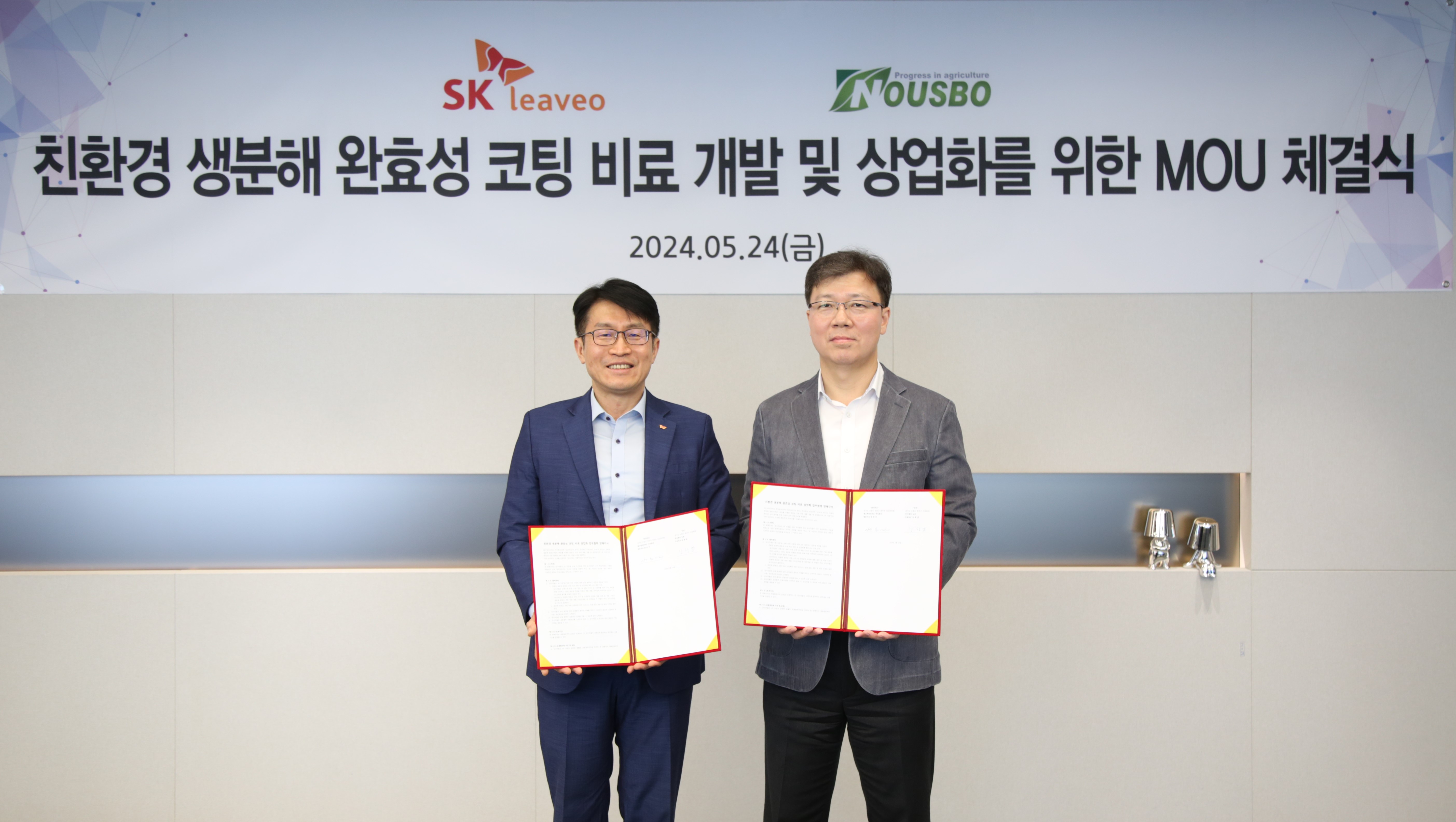 SK Leaveo enters into biodegradable slow-release fertilizer market
● Signing an agreement with agricultural products wholesaler Nousbo on May 24 to commercialize biodegradable polymer-coated CRF fertilizers●Collaboratively developing PBAT-coated ecofriendly product to replace conventional plastic-based coating agentsSK Leaveo, the biodegradable material production subsidiary of SKC (CEO: Woncheol Park), enters into the biodegradable material (PBAT)-coated fertilizer market. Established as a joint venture between SKC and food manufacturer Daesang in 2021 to commercialize biodegradable materials, SK Leaveo is rapidly expanding its market coverage from ordinary disposable products to hygiene products such as wet wipe and diaper, and even agricultural fertilizer coating agents.SK Leaveo signed a memorandum of understanding (MoU) with agricultural products wholesaler Nousbo at its head office in Jongro-gu, Seoul on the 24th to collaborate on the commercialization of eco-friendly biodegradable slow-release coating fertilizers. The signing ceremony was attended by the management leaders of the two companies including CEO Hojin Yang of SK Leaveo and CEO Changgyun Kim of Nousbo.SK Leaveo and Nousbo have reached an agreement to collaborative develop ingredients, materials, processes, and product designs for the commercial launch of a new product by the first quarter of next year. They will also expand their partnership to include business model development and global marketing efforts, with the goal of further expanding their market presence.Slow-release fertilizers (SRFs) utilize coating agents to gradually release fertilizer, allowing for precise control of nutrient release aligned with crop growth. The use of SRFs is steadily increasingly due to their ability to significantly reduce soil and groundwater pollution, greenhouse gas emissions, and the need for labor by preventing fertilizer overuse. However, the majority of conventional fertilizer coatings are composed of plastic resins like polyester (PE), which can contaminate soil with residual microplastics.In contrast, the biodegradable slow-release coating fertilizers being jointly developed by SK Leaveo and Nousbo offer an innovative solution to these issues. PBAT, which biodegrades in the natural environment, is utilized as the coating material instead of conventional plastics, leaving no residual coating once the fertilizer is fully released. In addition, the biodegradation interval can be adjusted by varying the coating thickness, ensuring greater ease of control over the fertilizer release rate in alignment with the crop growth pattern.As concerns about microplastics in soil continue to rise, the biodegradable coating fertilizer market is expected to expand even further. Europe, one of the biggest fertilizer markets along with North America, intends to implement a ban on fertilizers coated with plastic resins from 2026.SK Leaveo held a groundbreaking ceremony in Hai Phong, Vietnam on May 11 to commence the construction of the world’s biggest single PBAT production plant capable, with a capacity to produce 70,000 tons annually. “The partnership MoU with Nousbo will facilitate the expansion of our biodegradable material business,” said an official at SK Leaveo. “We are dedicated to discovering additional applications for biodegradable materials by maintaining our commitment to technology development initiatives.” [End][SK Leaveo and Nousbo signed a Memorandum of Understanding (MoU) for the development and commercialization of biodegradable slow-release coating fertilizer at the SKC head office in Jongro-gu, Seoul on the 24th. CEO Hojin Yang of SK Leaveo (left) and CEO Changgyun Kim of Nousbo present copies of the MoU.]
2024-05-27
SK Leaveo enters into biodegradable slow-release fertilizer market
● Signing an agreement with agricultural products wholesaler Nousbo on May 24 to commercialize biodegradable polymer-coated CRF fertilizers●Collaboratively developing PBAT-coated ecofriendly product to replace conventional plastic-based coating agentsSK Leaveo, the biodegradable material production subsidiary of SKC (CEO: Woncheol Park), enters into the biodegradable material (PBAT)-coated fertilizer market. Established as a joint venture between SKC and food manufacturer Daesang in 2021 to commercialize biodegradable materials, SK Leaveo is rapidly expanding its market coverage from ordinary disposable products to hygiene products such as wet wipe and diaper, and even agricultural fertilizer coating agents.SK Leaveo signed a memorandum of understanding (MoU) with agricultural products wholesaler Nousbo at its head office in Jongro-gu, Seoul on the 24th to collaborate on the commercialization of eco-friendly biodegradable slow-release coating fertilizers. The signing ceremony was attended by the management leaders of the two companies including CEO Hojin Yang of SK Leaveo and CEO Changgyun Kim of Nousbo.SK Leaveo and Nousbo have reached an agreement to collaborative develop ingredients, materials, processes, and product designs for the commercial launch of a new product by the first quarter of next year. They will also expand their partnership to include business model development and global marketing efforts, with the goal of further expanding their market presence.Slow-release fertilizers (SRFs) utilize coating agents to gradually release fertilizer, allowing for precise control of nutrient release aligned with crop growth. The use of SRFs is steadily increasingly due to their ability to significantly reduce soil and groundwater pollution, greenhouse gas emissions, and the need for labor by preventing fertilizer overuse. However, the majority of conventional fertilizer coatings are composed of plastic resins like polyester (PE), which can contaminate soil with residual microplastics.In contrast, the biodegradable slow-release coating fertilizers being jointly developed by SK Leaveo and Nousbo offer an innovative solution to these issues. PBAT, which biodegrades in the natural environment, is utilized as the coating material instead of conventional plastics, leaving no residual coating once the fertilizer is fully released. In addition, the biodegradation interval can be adjusted by varying the coating thickness, ensuring greater ease of control over the fertilizer release rate in alignment with the crop growth pattern.As concerns about microplastics in soil continue to rise, the biodegradable coating fertilizer market is expected to expand even further. Europe, one of the biggest fertilizer markets along with North America, intends to implement a ban on fertilizers coated with plastic resins from 2026.SK Leaveo held a groundbreaking ceremony in Hai Phong, Vietnam on May 11 to commence the construction of the world’s biggest single PBAT production plant capable, with a capacity to produce 70,000 tons annually. “The partnership MoU with Nousbo will facilitate the expansion of our biodegradable material business,” said an official at SK Leaveo. “We are dedicated to discovering additional applications for biodegradable materials by maintaining our commitment to technology development initiatives.” [End][SK Leaveo and Nousbo signed a Memorandum of Understanding (MoU) for the development and commercialization of biodegradable slow-release coating fertilizer at the SKC head office in Jongro-gu, Seoul on the 24th. CEO Hojin Yang of SK Leaveo (left) and CEO Changgyun Kim of Nousbo present copies of the MoU.]
2024-05-27
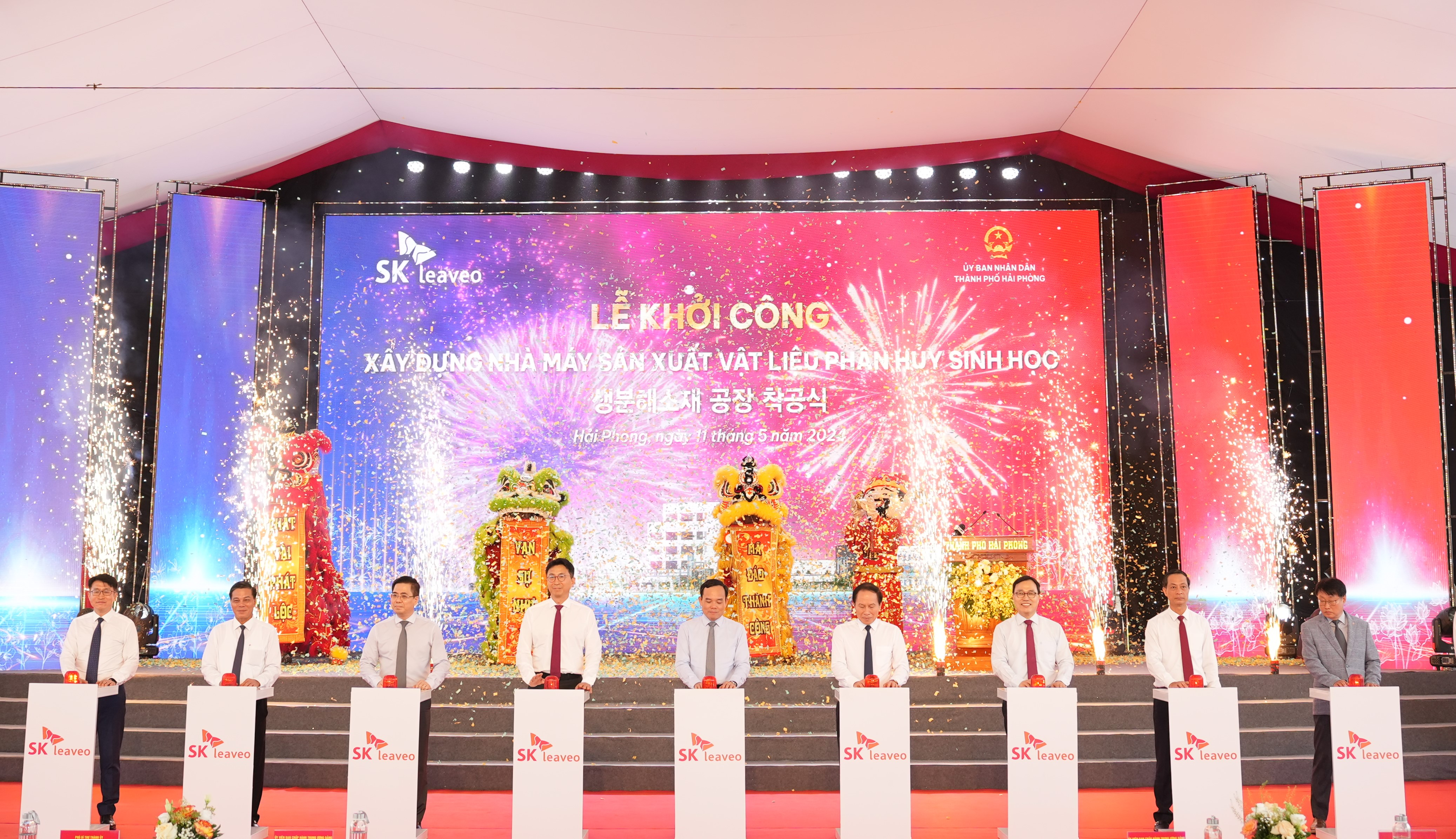 SK Leaveo breaks ground on a biodegradable material plant in Vietnam
SK Leaveo breaks ground on a biodegradable material plant in Vietnam● SK Leaveo held a groundbreaking ceremony in the Special Economic Zone of Hai Phong City, Vietnam on the 11th to build the world’s biggest production plant with an annual throughput of 70,000 tons● Maximizing quality and productivity with proprietary technologies and building eco-friendly material ecosystem with Vietnam’s biggest plastic company● SKC CEO Woncheol Park says, “the project marks the beginning of SK Leaveo’s far-seeing dream of resolving the plastic crisis and fostering a sustainable economy”SK Leaveo, the eco-friendly material production arm of SKC (CEO: Woncheol Park) has embarked in full swing on the construction of the world’s biggest PBAT (Polybutylene Adipate Terephthalate) production plant.On May 11 (local time), SK Leaveo held the PBAT plant groundbreaking ceremony in the special economic zone of Hai Phong City, Vietnam. The occasion was attended by SKC executives including SKC CEO Woncheol Park and SK Leaveo CEO Hojin Yang, the Ambassador of the ROK to Vietnam Youngsam Choi, and local government dignitaries including Tran Luu Quang, deputy prime minister of Vietnam, and Le Tien Chau, Secretary of the Hai Phong Party Committee.SK Leaveo is a joint venture incorporated by SKC in partnership with food maker Daesang Corp. in 2022 to launch its high-strength PBAT material business. After adopting high-strength PBAT technology from the Korea Research Institute of Chemical Technology (KRICT) in 2020, SKC continued to upgrade the technology with persistent R&D efforts to prepare for commercialization.The PBAT production plant in Vietnam in which SK Leaveo is investing about 100 million dollars in the first phase will cover 22,389㎡ with an annual production capacity of 70,000 tons which will break the world’s record for a single plant. The plant is scheduled to go live in Q3, 2025 and SK Leaveo has already secured additional sites required for capacity expansion to lay down in advance the groundwork for global expansion.PBAT, known as the decaying plastic, replaces conventional plastics. When buried, gets decomposed naturally by microorganisms, thus contributing to reducing environmental challenges posted by wastes. Conventional PBAT is weak on durability, which limits its applications. Yet, SK Leaveo has developed high-strength PBAT with a proprietary technology utilizing nanocellulose as natural reinforcing agent, which expands its applications from agricultural films, packaging materials, containers to fiber, non-woven fabric, and so forth.Hai Phong City that will be home to SK Leaveo’s PBAT plant is one of the top three cities in Vietnam including the capital city of Hanoi and Ho Chi Minh City in the south, known to be Vietnam’s top sea port and crucial industrial city. In particular, the special economic zone of Hai Phong City where SKC’s biodegradable plastic production plant will be accommodated is touted for providing optimum port and logistics infrastructure.The production plant will use raw material mixing and an ester polymerization processes to produce PBAT. In particular, the nanocellulose reinforcing agent and SKC’s over 40-year-long world-leading know-how will enhance process efficiency to reduce the required investment and lift up productivity. Furthermore, with the wholehearted support from the local government, the plant will satisfy the RE100 (Renewable Energy 100%) requirements, covering 100% of its energy load with only renewable energy sources.Along with the production facility, SK Leaveo also vows to foster an eco-friendly biodegradable material industry ecosystem in Vietnam. To that end, SK Leaveo is partnering with An Phat Corp., Vietnam’s largest plastic manufacturer. An Phat will invest in SK Leaveo's Vietnamese subsidiary and sign a long-term PBAT purchase agreement to manufacture biodegradable plastic products bound for major markets around the world.“Plastic is an indispensable material for modern society, but evokes serious environmental issues,” said SKC CEO Woncheol Park. “The PBAT plant groundbreaking ceremony marks the beginning of SKC and SK Leaveo’s far-seeing dream of resolving the plastic crisis and fostering a sustainable economy.” [End][SKC CEO Woncheol Park (fourth from the left), Tran Luu Quang, deputy prime minister of Viet Nam (fifth from the left), and other executive officials press the groundbreaking button at the groundbreaking ceremony of SK Leaveo’s biodegradable plastic production plant held in the special economic zone of Hai Phong City, Vietnam on May 11 (local time).]
2024-05-13
SK Leaveo breaks ground on a biodegradable material plant in Vietnam
SK Leaveo breaks ground on a biodegradable material plant in Vietnam● SK Leaveo held a groundbreaking ceremony in the Special Economic Zone of Hai Phong City, Vietnam on the 11th to build the world’s biggest production plant with an annual throughput of 70,000 tons● Maximizing quality and productivity with proprietary technologies and building eco-friendly material ecosystem with Vietnam’s biggest plastic company● SKC CEO Woncheol Park says, “the project marks the beginning of SK Leaveo’s far-seeing dream of resolving the plastic crisis and fostering a sustainable economy”SK Leaveo, the eco-friendly material production arm of SKC (CEO: Woncheol Park) has embarked in full swing on the construction of the world’s biggest PBAT (Polybutylene Adipate Terephthalate) production plant.On May 11 (local time), SK Leaveo held the PBAT plant groundbreaking ceremony in the special economic zone of Hai Phong City, Vietnam. The occasion was attended by SKC executives including SKC CEO Woncheol Park and SK Leaveo CEO Hojin Yang, the Ambassador of the ROK to Vietnam Youngsam Choi, and local government dignitaries including Tran Luu Quang, deputy prime minister of Vietnam, and Le Tien Chau, Secretary of the Hai Phong Party Committee.SK Leaveo is a joint venture incorporated by SKC in partnership with food maker Daesang Corp. in 2022 to launch its high-strength PBAT material business. After adopting high-strength PBAT technology from the Korea Research Institute of Chemical Technology (KRICT) in 2020, SKC continued to upgrade the technology with persistent R&D efforts to prepare for commercialization.The PBAT production plant in Vietnam in which SK Leaveo is investing about 100 million dollars in the first phase will cover 22,389㎡ with an annual production capacity of 70,000 tons which will break the world’s record for a single plant. The plant is scheduled to go live in Q3, 2025 and SK Leaveo has already secured additional sites required for capacity expansion to lay down in advance the groundwork for global expansion.PBAT, known as the decaying plastic, replaces conventional plastics. When buried, gets decomposed naturally by microorganisms, thus contributing to reducing environmental challenges posted by wastes. Conventional PBAT is weak on durability, which limits its applications. Yet, SK Leaveo has developed high-strength PBAT with a proprietary technology utilizing nanocellulose as natural reinforcing agent, which expands its applications from agricultural films, packaging materials, containers to fiber, non-woven fabric, and so forth.Hai Phong City that will be home to SK Leaveo’s PBAT plant is one of the top three cities in Vietnam including the capital city of Hanoi and Ho Chi Minh City in the south, known to be Vietnam’s top sea port and crucial industrial city. In particular, the special economic zone of Hai Phong City where SKC’s biodegradable plastic production plant will be accommodated is touted for providing optimum port and logistics infrastructure.The production plant will use raw material mixing and an ester polymerization processes to produce PBAT. In particular, the nanocellulose reinforcing agent and SKC’s over 40-year-long world-leading know-how will enhance process efficiency to reduce the required investment and lift up productivity. Furthermore, with the wholehearted support from the local government, the plant will satisfy the RE100 (Renewable Energy 100%) requirements, covering 100% of its energy load with only renewable energy sources.Along with the production facility, SK Leaveo also vows to foster an eco-friendly biodegradable material industry ecosystem in Vietnam. To that end, SK Leaveo is partnering with An Phat Corp., Vietnam’s largest plastic manufacturer. An Phat will invest in SK Leaveo's Vietnamese subsidiary and sign a long-term PBAT purchase agreement to manufacture biodegradable plastic products bound for major markets around the world.“Plastic is an indispensable material for modern society, but evokes serious environmental issues,” said SKC CEO Woncheol Park. “The PBAT plant groundbreaking ceremony marks the beginning of SKC and SK Leaveo’s far-seeing dream of resolving the plastic crisis and fostering a sustainable economy.” [End][SKC CEO Woncheol Park (fourth from the left), Tran Luu Quang, deputy prime minister of Viet Nam (fifth from the left), and other executive officials press the groundbreaking button at the groundbreaking ceremony of SK Leaveo’s biodegradable plastic production plant held in the special economic zone of Hai Phong City, Vietnam on May 11 (local time).]
2024-05-13
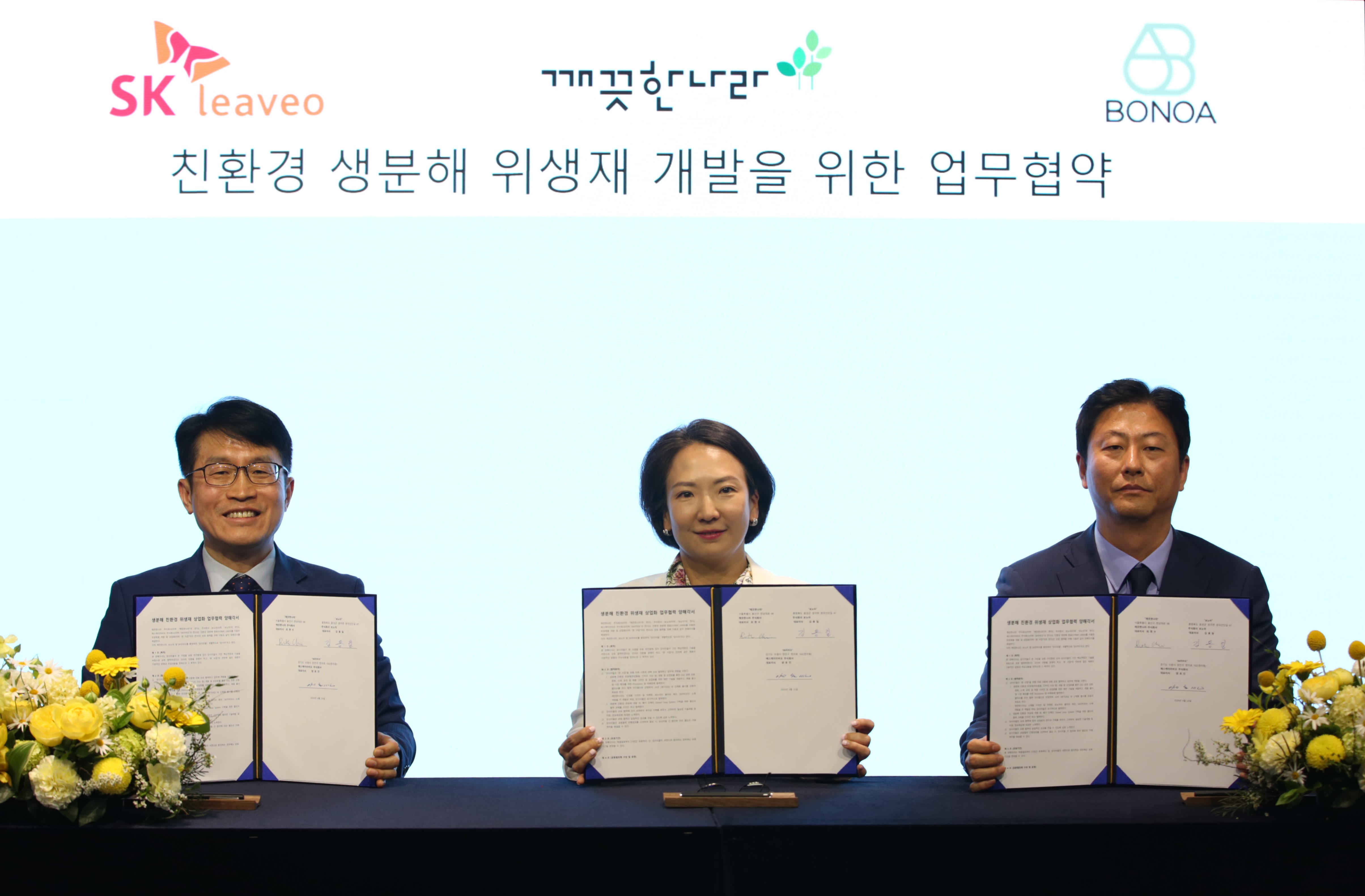 SK Leaveo-KleanNara join hands in making biodegradable wipes·diapers
● SK Leaveo-KleanNara-Bonoa have come to an agreement to commercialize biodegradable eco-friendly hygienic materials ··· putting heads together to develop innovative new products● Conventional hygienic products made of plastic are increasingly identified as a ‘source of pollution embedded in daily life’··· PBAT·biodegradable LIMEX to contribute towards addressing the challengeSK Leaveo, the biodegradable material production arm of SKC (CEO: Woncheol Park), collaborates with KleanNara, a premium paper product manufacturer in Korea, to develop hygienic products made of biodegradable materials.On the 23rd, SK Leaveo, KleanNara, and KleanNara’s subsidiary Bonoa convened at SKC head office in Jongro-gu, Seoul to formalize an agreement on the commercialization of biodegradable eco-friendly hygienic materials. The signing ceremony was honored by the attendance of the top management officials representing each party to the agreement, namely, CEO Hojin Yang of SK Leaveo, CEO Hyunsoo Choi of KleanNara and CEO Yongil Kim of Bonoa.SK Leaveo and KleanNara have entered into an agreement to jointly develop and commercialize a range of hygienic products utilizing biodegradable PBAT(Polybutylene Adipate Terephthalate) and LIMEX materials. They also intend to launch a separate joint research initiative focused on developing a comprehensive lifecycle circulation model spanning from production to disposal.The first collaboration item between the two companies will be wet wipes frequently used in our daily life. Unlike dry paper tissues, conventional wet wipes are composed of a blend of fabric infused with plastic materials such as polyester. According to the Korean Ministry of Environment, the annual consumption of wet wipes in homes, restaurants and other establishments in Korea amounts to 1.6 million tons. Due to the characteristics of polyester, wet wipes are resistant to decomposition when reclaimed and may release hazardous substances when incinerated, thus earning criticism as a “source of pollution embedded in daily life.”To address these challenges, SK Leaveo and KleanNara are targeting the launch of new wet wipes, utilizing high-strength PBAT and biodegradable LIMEX, in the third quarter of this year. Their objective is to provide a solution that naturally decomposes while delivering strength and price competitiveness comparable to conventional polyester-based wet wipes. Additionally, they seek to expand their collaborative efforts to facilitate the commercialization of products derived from biodegradable materials. These products will replace items such as diapers and women’s specialty items, currently manufactured from plastic vinyl or non-woven cloth, which may present similar environmental concerns as wet wipes.Meanwhile, SK Leaveo will begin construction on the world’s largest PBAT production plant, with a capacity of 70,000 tons per year, in Hai Phong, Vietnam during the first half of this year. The plant will also accommodate the production facilities of SK TBMGeostone, an SKC investee specializing in biodegradable LIMEX production, to enhance synergy between the two entities.“Collaborating with KleanNara allows us to swiftly broaden the use of biodegradable materials to encompass a wide array of everyday hygienic products,” remarked a representative from SK Leaveo. “We are committed to further develop high-value biodegradable products at a commercial scale to cater to an even broader range of applications.” [End][On April 23rd, SK Leaveo, SKC’s biodegradable material subsidiary, entered into an agreement with KleanNara and Bonoa for the development of eco-friendly biodegradable hygienic materials. The signed copies of the agreement were presented by CEO Hojin Yang of SK Leaveo, CEO Hyunsoo Choi of KleanNara and CEO Yongil Kim of Bonoa.]
2024-04-24
SK Leaveo-KleanNara join hands in making biodegradable wipes·diapers
● SK Leaveo-KleanNara-Bonoa have come to an agreement to commercialize biodegradable eco-friendly hygienic materials ··· putting heads together to develop innovative new products● Conventional hygienic products made of plastic are increasingly identified as a ‘source of pollution embedded in daily life’··· PBAT·biodegradable LIMEX to contribute towards addressing the challengeSK Leaveo, the biodegradable material production arm of SKC (CEO: Woncheol Park), collaborates with KleanNara, a premium paper product manufacturer in Korea, to develop hygienic products made of biodegradable materials.On the 23rd, SK Leaveo, KleanNara, and KleanNara’s subsidiary Bonoa convened at SKC head office in Jongro-gu, Seoul to formalize an agreement on the commercialization of biodegradable eco-friendly hygienic materials. The signing ceremony was honored by the attendance of the top management officials representing each party to the agreement, namely, CEO Hojin Yang of SK Leaveo, CEO Hyunsoo Choi of KleanNara and CEO Yongil Kim of Bonoa.SK Leaveo and KleanNara have entered into an agreement to jointly develop and commercialize a range of hygienic products utilizing biodegradable PBAT(Polybutylene Adipate Terephthalate) and LIMEX materials. They also intend to launch a separate joint research initiative focused on developing a comprehensive lifecycle circulation model spanning from production to disposal.The first collaboration item between the two companies will be wet wipes frequently used in our daily life. Unlike dry paper tissues, conventional wet wipes are composed of a blend of fabric infused with plastic materials such as polyester. According to the Korean Ministry of Environment, the annual consumption of wet wipes in homes, restaurants and other establishments in Korea amounts to 1.6 million tons. Due to the characteristics of polyester, wet wipes are resistant to decomposition when reclaimed and may release hazardous substances when incinerated, thus earning criticism as a “source of pollution embedded in daily life.”To address these challenges, SK Leaveo and KleanNara are targeting the launch of new wet wipes, utilizing high-strength PBAT and biodegradable LIMEX, in the third quarter of this year. Their objective is to provide a solution that naturally decomposes while delivering strength and price competitiveness comparable to conventional polyester-based wet wipes. Additionally, they seek to expand their collaborative efforts to facilitate the commercialization of products derived from biodegradable materials. These products will replace items such as diapers and women’s specialty items, currently manufactured from plastic vinyl or non-woven cloth, which may present similar environmental concerns as wet wipes.Meanwhile, SK Leaveo will begin construction on the world’s largest PBAT production plant, with a capacity of 70,000 tons per year, in Hai Phong, Vietnam during the first half of this year. The plant will also accommodate the production facilities of SK TBMGeostone, an SKC investee specializing in biodegradable LIMEX production, to enhance synergy between the two entities.“Collaborating with KleanNara allows us to swiftly broaden the use of biodegradable materials to encompass a wide array of everyday hygienic products,” remarked a representative from SK Leaveo. “We are committed to further develop high-value biodegradable products at a commercial scale to cater to an even broader range of applications.” [End][On April 23rd, SK Leaveo, SKC’s biodegradable material subsidiary, entered into an agreement with KleanNara and Bonoa for the development of eco-friendly biodegradable hygienic materials. The signed copies of the agreement were presented by CEO Hojin Yang of SK Leaveo, CEO Hyunsoo Choi of KleanNara and CEO Yongil Kim of Bonoa.]
2024-04-24
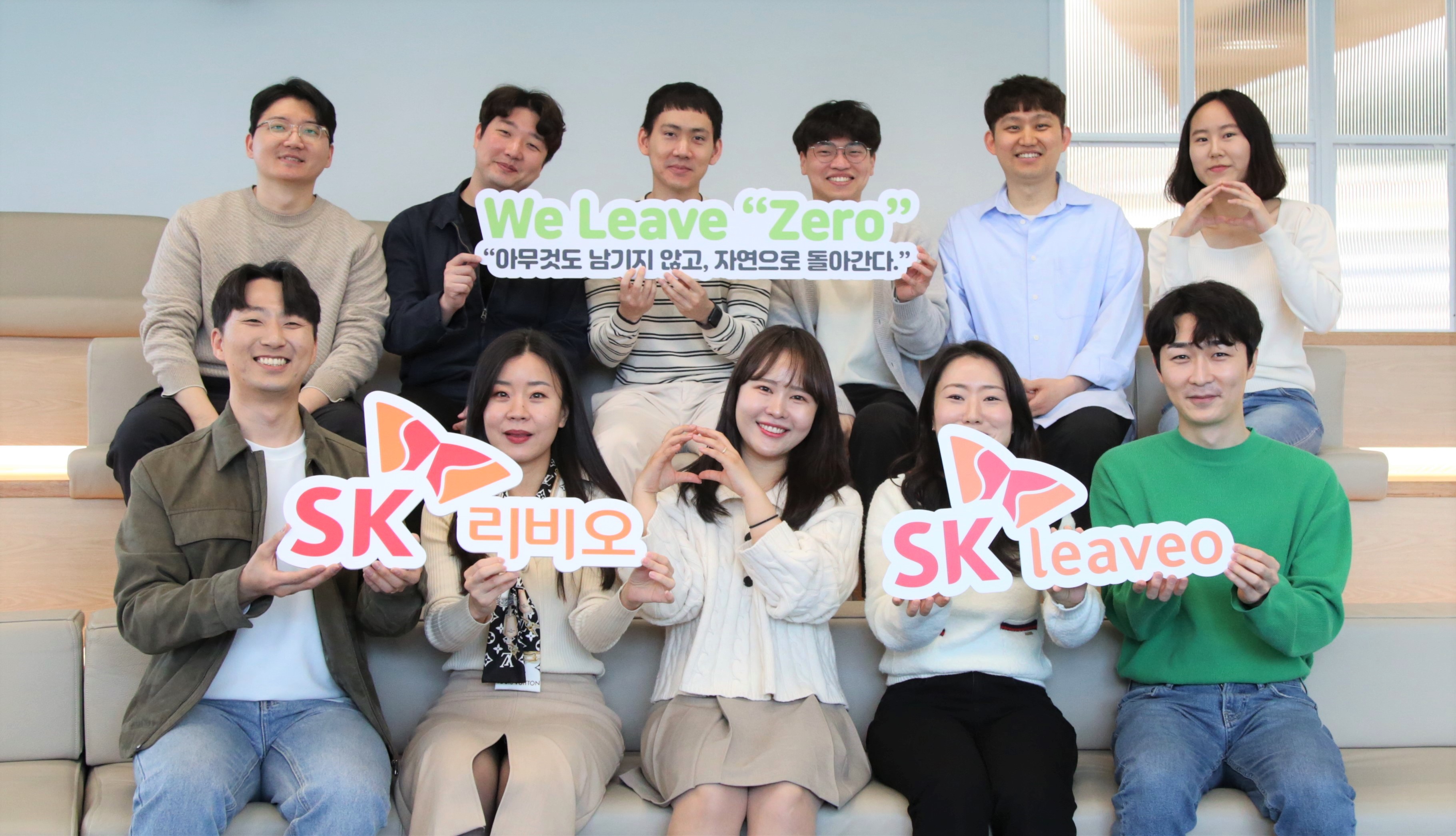 SKC’s biodegradable material investee makes a fresh start as SK leaveo
● Biodegradable material investee Ecovance renamed SK leaveo ··· embodying the core value of its BM● Full-scale commercialization in high gear with ground broken to build the world’s largest production plant in Hai Phong, Vietnam in the first half of this yearSKC (CEO Woncheol Park)’s biodegradable material investee Ecovance has been renamed SK leaveo, going for full-scale commercialization.SK leaveo held a board meeting on the 5th of April where the board members resolved to change the corporate name. The new name embodies the core value of their biodegradable material business model (BM); that their products will biodegrade naturally, leaving zero waste. SK leaveo also unveiled their new slogan, ‘We leave zero,’ in step with the new corporate name.SK leaveo plans to break ground in Hai Phong, Vietnam in the first half of this year to build the world’s largest PBAT (Polybutylene Adipate Terephthalate) production plant capable of producing 70,000 tons a year. Hai Phong is Vietnam’s principal port city and key industrial hub, equipped with excellent logistics infrastructure. The city can also meet RE100 requirements by supplying all electricity demands with renewable energy, ensuring the eco-friendliness of the production process.To expand the viable applications of PBAT, SKC uses nano-cellulose extracted from trees as a reinforcing agent to drastically increase its strength to a level comparable to conventional plastic. Accordingly, PBAT can be used for not only agricultural and packaging films and containers for various consumable products but also non-woven fabrics in personal hygiene products including diapers, sanitary pads and other filter products.A production facility of SK TBMgeostone, SKC’s biodegradable LIMEX material investee, will be also hosted by Hai Phong. Biodegradable LIMEX is an innovative eco-friendly material made from natural inorganic limestone combined with biodegradable PBAT resin in lieu of conventional plastic. Synergy between Vietnam’s rich limestone reserve and SK leaveo’s PBAT technology is expected to result in superb quality and price competitiveness.“The new name shows the significance and vision of our biodegradable material business more clearly,” said a SK leaveo official. “We will expand our eco-friendly business portfolio, producing high-value material solutions for a wide variety of applications.” [End][People of SK leaveo, SKC’s biodegradable material investee, present the new CI and slogan.][SK leaveo CI]
2024-04-08
SKC’s biodegradable material investee makes a fresh start as SK leaveo
● Biodegradable material investee Ecovance renamed SK leaveo ··· embodying the core value of its BM● Full-scale commercialization in high gear with ground broken to build the world’s largest production plant in Hai Phong, Vietnam in the first half of this yearSKC (CEO Woncheol Park)’s biodegradable material investee Ecovance has been renamed SK leaveo, going for full-scale commercialization.SK leaveo held a board meeting on the 5th of April where the board members resolved to change the corporate name. The new name embodies the core value of their biodegradable material business model (BM); that their products will biodegrade naturally, leaving zero waste. SK leaveo also unveiled their new slogan, ‘We leave zero,’ in step with the new corporate name.SK leaveo plans to break ground in Hai Phong, Vietnam in the first half of this year to build the world’s largest PBAT (Polybutylene Adipate Terephthalate) production plant capable of producing 70,000 tons a year. Hai Phong is Vietnam’s principal port city and key industrial hub, equipped with excellent logistics infrastructure. The city can also meet RE100 requirements by supplying all electricity demands with renewable energy, ensuring the eco-friendliness of the production process.To expand the viable applications of PBAT, SKC uses nano-cellulose extracted from trees as a reinforcing agent to drastically increase its strength to a level comparable to conventional plastic. Accordingly, PBAT can be used for not only agricultural and packaging films and containers for various consumable products but also non-woven fabrics in personal hygiene products including diapers, sanitary pads and other filter products.A production facility of SK TBMgeostone, SKC’s biodegradable LIMEX material investee, will be also hosted by Hai Phong. Biodegradable LIMEX is an innovative eco-friendly material made from natural inorganic limestone combined with biodegradable PBAT resin in lieu of conventional plastic. Synergy between Vietnam’s rich limestone reserve and SK leaveo’s PBAT technology is expected to result in superb quality and price competitiveness.“The new name shows the significance and vision of our biodegradable material business more clearly,” said a SK leaveo official. “We will expand our eco-friendly business portfolio, producing high-value material solutions for a wide variety of applications.” [End][People of SK leaveo, SKC’s biodegradable material investee, present the new CI and slogan.][SK leaveo CI]
2024-04-08
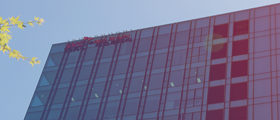 A leading company that strive for the world’s best.
A leading company that strive for the world’s best.
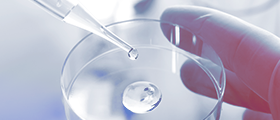 Global ESG material solutions company
Global ESG material solutions company
 SKC is making efforts to create a better future for all of our partners.
SKC is making efforts to create a better future for all of our partners.
 SKC is making efforts to create a better future for all of our partners.
SKC is making efforts to create a better future for all of our partners.



